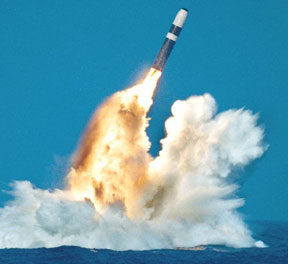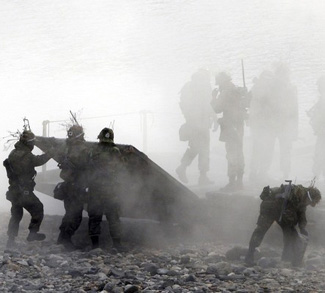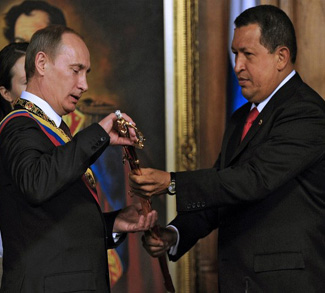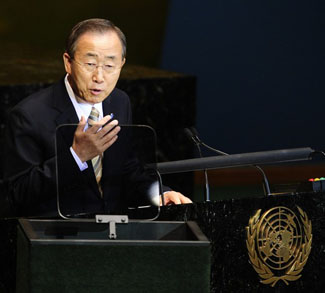Impending defense cuts in the United Kingdom, and the alarm that they are generating in Washington, are both indicative of a shifting global balance of power. While the presence of such a shift is now beyond the shadow of a doubt, an extremely important question remains largely ignored: Will defense policy in the West be handcuffed by old paradigms or guided by the new global reality.
The budget crisis in the United Kingdom has cast a cost-cutting spotlight on several of the state’s golden calves, but none of them are as important or divisive as the future of British defense spending. According to government sources, the axe is about to come down on the UK Ministry of Defense to the tune of about an 8 percent cut in spending. The Royal Air Force (RAF) is thought to be absorbing the brunt of these cuts. While the cuts are deep, they are markedly tamer than the 10 percent number that has been thrown around since the beginning of the Strategic Defense and Spending Review.
Debates over the size and scope of the UK’s military are intimately connected to the past and how the voting public perceive Britain’s role in the world. The Trident program is particularly illustrative of this point. To many of its citizens, Britain’s status as an independent nuclear power is absolutely necessary as it symbolizes past glory and justifies a permanent seat on the UN Security Council. According to Greenpeace, a replacement program for Trident, which is earmarked to be taken out of service in 2020, would run anywhere from £80 to £100 billion.
Thus we see how the past can influence and guide defense planning. £100 billion could go a very long way in either alleviating Britain’s considerable budget strains or procuring military equipment more suited to today’s rapid-deployment asymmetric warfare. Instead, it will be sunk into a program that, while a ‘feel good’ symbol of British global power, is in reality based on a security paradigm that expired when the Soviet Union collapsed in 1991.
‘Is Britain still a world power?’ Should be the question being asked in the United Kingdom these days, and ‘if not, how do we best leverage our limited resources?’ According to the Wall Street Journal, the Royal Navy would be hard pressed to stage an operation like the 1980 Falklands War if called upon to do so again today. If this is in fact true, then the survival of two new aircraft carriers seems like an odd choice; even odder if one takes into account that there are no suitable planes to be launched from them. But again, aircraft carriers are a high profile symbol of having military power with a global reach.
Eventually, UK security planners will need to consider whether maintaining a pseudo ‘blue sea’ navy, with a presence in the Persian Gulf, Indian Ocean, and the Caribbean is feasible given the United Kingdom’s shrinking slice of the global economic pie.
NATO, the Western alliance that helped to win the Cold War, is faced with a similar battle between past and present, and defense cuts in the United Kingdom are already having an impact. Secretary of State Hillary Clinton and Secretary of Defense Robert Gates’ comments ahead of the results of the Strategic Defense and Spending Review betray American apprehension over the future of the NATO alliance; and these are fears that are completely justified. American government officials will surely be looking ahead to their own inevitable process of soul-searching and re-ordering of defense priorities.
NATO’s core has always been the Transatlantic US-UK relationship, and the combination of steep defense cuts with the general lack of direction that the alliance has suffered from in the post-Cold War period could end up its undoing.
The distribution of global economic and military power is in a sustained state of flux, creating a fluid situation in which some states are on the rise and others in decline. In such an environment, new threats emerge quickly, demanding rapid response and the ability to learn from the past without being dominated by it. So far, the record of adaptation in NATO countries is not so good.




